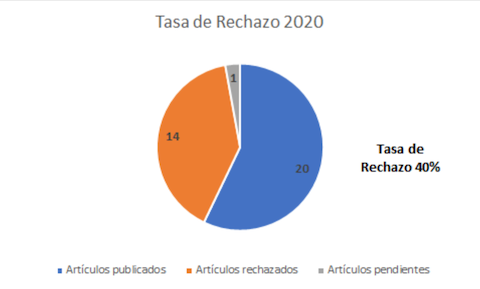Enfoque geoespacial de inteligencia colectiva en la fase de apreciación de la planificación militar
DOI:
https://doi.org/10.18667/cienciaypoderaereo.772Palabras clave:
inteligencia colectiva, método Delphi Espacial, planificación militar, Sistemas de Soporte a la Decisión EspacialesResumen
La planificación militar es un proceso esencial por el cual se puede llegar a determinar la mejor idea de maniobra y la forma más eficiente de empleo del poder militar, lo que permite al comandante tomar decisiones acertadas y oportunas. Para ello es fundamental un conocimiento profundo de la ciencia militar, así como de factores operacionales como espacio geográfico, fuerza y tiempo que permitan tener mayores probabilidades de éxito en la ejecución de las operaciones militares. Este artículo de investigación pretende plantear un nuevo enfoque en la fase de apreciación de planificación militar basado en un proyecto de investigación denominado Modelo de Planificación Geoespacial de Inteligencia Colectiva, mismo que tiene como método principal al método Delphi Espacial en tiempo real, automatizado a través de una herramienta web denominada Sistema Geoespacial de Inteligencia Colectiva (SIGIC), mediante la cual se obtiene un geoconsenso que nos permite concluir que sería pertinente o adecuado para poder brindar o dar soporte al comandante en escenarios geográficos complejos; así como también establecer patrones geoespaciales actuales y prospectivos enfocados principalmente a la planeación, organización y empleo de recursos territoriales.
Descargas
Referencias
Castillo Rosas, J. D., Jiménez Vélez, Á. F., Díez Rodríguez, J. J., Monguet Fierro, J. M. & Núñez Andrés, M. A. (2015). Geospatial System of Collective Intelligence: A technological application for the interdisciplinary study of the geographical space complexity. Collective Intelligence Conference, Michigan, EEUU https://sites.lsa.umich.edu/collectiveintelligence/wp-content/uploads/sites/176/2015/06/Rosas-CI-2015-Abstract.pdf
Di Zio, S. & Pacinelli, A. (2011). Opinion convergence in location: A spatial version of the Delphi method. Technological Forecasting and Social Change, 78(9), 1565-1578. https://doi.org/10.1016/j.techfore.2010.09.010
Emsellem, K., Liziard, S. & Scarella, F. (2012). La géoprospective: l’émergence d’un nouveau champ de recherche. Espace géographique, 41(2), 154-168. https://doi.org/10.3917/eg.412.0154
Gnatzy, T., Warth, J., von der Gracht, H. & Darkow, I. L. (2011). Validating an innovative real-time Delphi approach - A methodological comparison between real-time and conventional Delphi studies. Technological Forecasting and Social Change, 78(9), 1681-1694. https://doi.org/10.1016/j.techfore.2011.04.006
Goodchild, M. F., Yuan, M. & Cova, T. J. (2007). Towards a general theory of geographic representation in GIS. International Journal of Geographical Information Science, 21(3), 239-260. https://doi.org/10.1080/13658810600965271
Hsieh, C. H., Tzeng, F. M., Wu, C. G., Kao, J. S. & Lai, Y. Y. (2011). The comparison of online Delphi and real-time Delphi. Proceedings of PICMET ‘11: Technology Management in the Energy Smart World (PICMET), (pp. 1-3). https://ieeexplore.ieee.org/abstract/document/6017652
Houet, T. & Gourmelon, F. (2014). La géoprospective – Apport de la dimension spatiale aux démarches prospectives. Cybergeo: European Journal of Geography. [En ligne], Systèmes, Modélisation, Géostatistiques, document 667, mis en ligne le 08 février 2014, consulté le 29 mai 2023. URL : http://journals.openedition.org/cybergeo/26194 ; DOI : https://doi.org/10.4000/cybergeo.26194
Monguet, J., Ferruzca, M., Gutiérrez, A., Alatriste, Y., Martínez, C., Cordoba, C., Fernández, J., Sanguino, T. & Aguilà, J. (2010). Vector Consensus: Decision Making for Collaborative Innovation Communities [conference]. Enterprise Information Systems: International Conference, CENTERIS 2010, Viana do Castelo, Portugal. https://doi.org/10.1007/978-3-642-16419-4_22
Lévy, P. (1997). Education and training: New technologies and collective intelligence. Prospects, 27(2), 248-263. https://doi.org/10.1007/BF02737169
Painho, M., Vasilakos, A., Bacao, F. & Pedrycz, W. (2005). Exploring spatial data through computational intelligence: a joint perspective. Soft Computing, 9, 326-331. https://doi.org/10.1007/s00500-004-0411-6
Santos, M. (2006). The nature of space: technique and time, reason and emotion. Edusp, Sao Paulo, 4. https://ebin.pub/the-nature-of-space-1478013486-9781478013488.html.
Voiron-Canicio, C. (2012). L’anticipation du changement en prospective et des changements spatiaux en géoprospective. Espace géographique, 41(2), 99-110. https://doi.org/10.3917/eg.412.0099
Descargas
Publicado
Número
Sección
Licencia
Derechos de autor 2023 Escuela de Postgrados de la Fuerza Aérea Colombiana

Esta obra está bajo una licencia internacional Creative Commons Atribución 4.0.
Declaración de cesión de los derechos de autor a la revista
Los autores ceden la Revista los derechos de explotación (reproducción, distribución, comunicación pública y transformación) para explotar y comercializar la obra, entera o en parte, en todos los formatos y modalidades de explotación presentes o futuros, en todos los idiomas, por todo el periodo de vida de la obra y por todo el mundo.
Todos los contenidos publicados en la revista científica Ciencia y Poder Aéreo están sujetos a la licencia reconocimiento 4.0 Internacional de Creative Commons, cuyo texto completo se puede consultar en http://creativecommons.org/licenses/by/4.0/
La licencia permite a cualquier usuario descargar, imprimir, extraer, archivar, distribuir y comunicar públicamente este artículo, siempre y cuando el crédito se dé a los autores de la obra: a los autores del texto y a Ciencia y Poder Aéreo, Revista Científica de la Escuela de Postgrados de la Fuerza Aérea Colombiana. Excepto cuando se indique lo contrario, el contenido en este sitio es licenciado bajo una licencia Creative Commons Atribución 4.0 internacional.
Para usos de los contenidos no previstos en estas normas de publicación es necesario contactar directamente con el director o editor de la revista a través del correo cienciaypoderaereo@epfac.edu.
La Escuela de Postgrados de la Fuerza Aérea Colombiana y esta publicación no son responsables de los conceptos emitidos en los artículos, ni de los metadatos aportados ni de las filiaciones que los autores declaren, ya que esta es responsabilidad plena de los autores.






















